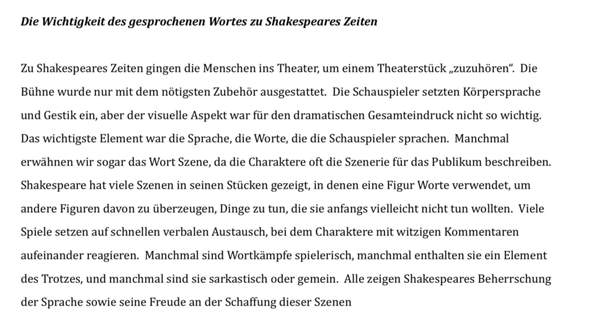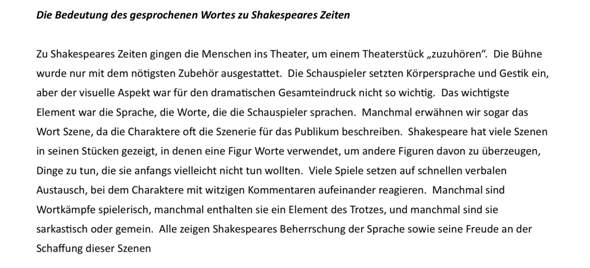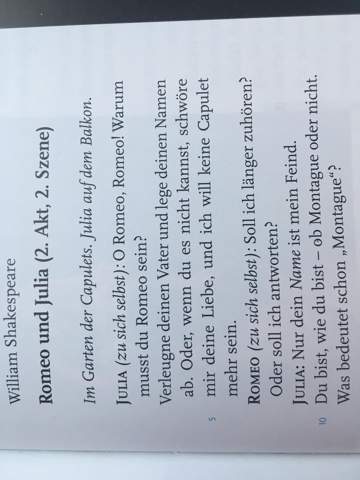Englisch Präsentation?
Hallo,
ich muss in Englisch Lk eine 60 minütige Präsentation halten. Ich habe das Thema die Welt um 1500 und das Drama von Shakespeare The Merchant of Venice. Ich soll einen kreativen Part haben , ich kann z.b schauspielen, einen Film draus machen etc…
Das Drama und das Thema kann ich miteinander verknüpfen oder einzelne vorstellen in der Zeit. Ich weiß leider nicht wie ich am besten anfangen soll und was relevant ist zu erzählen, dazu haben wir nämlich nichts gesagt bekommen. Könnte mir einer helfen, das Drama muss ich noch lesen , ich habe die ganzen Sommerferien dafür Zeit die Präsentation fertig zu stellen.










